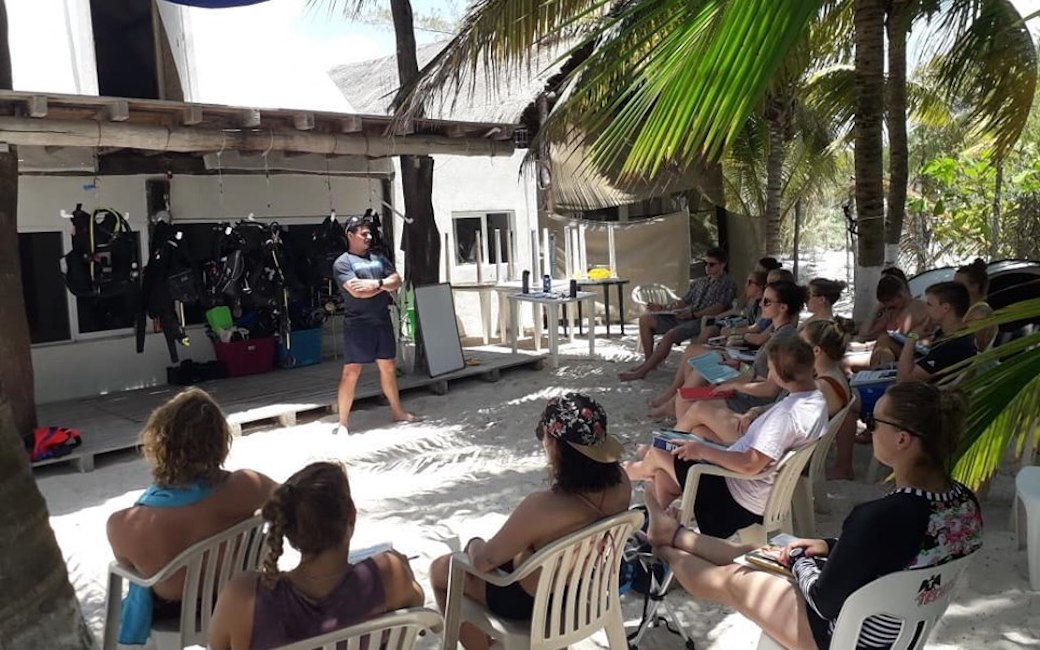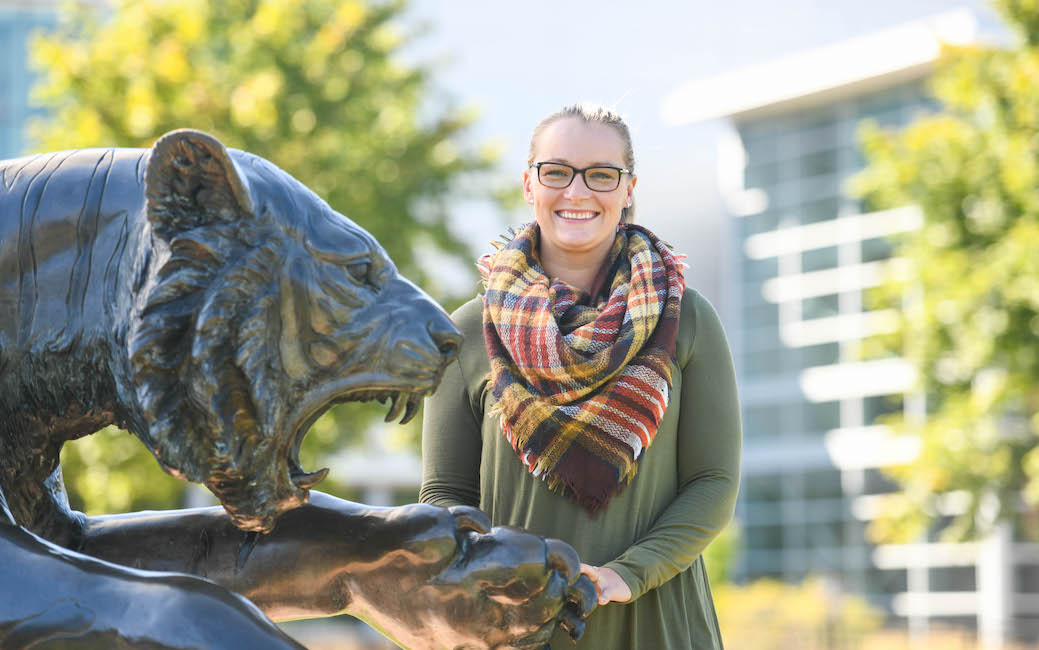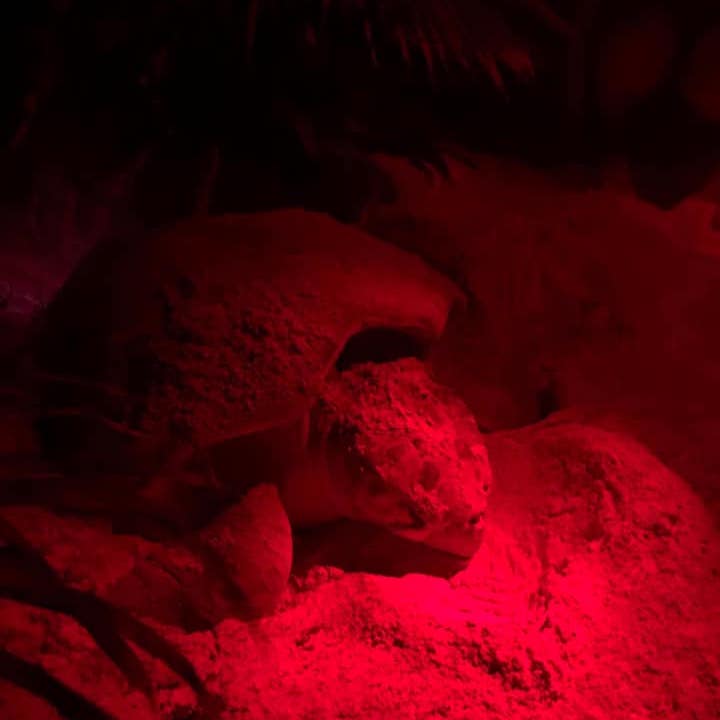
Finding her future on the ocean floor
Senior benefits from Gilman Scholarship to further her research learning
By Megan Bradshaw on October 8, 2019

Studying abroad in Mexico was just one stop on the journey Carrollanne Farmer ’20 is taking.
A native Oklahoman and a Vermont high school graduate, Farmer enrolled at Norwich University to study biology with an eye on going to medical school. But the crashing economy in 2008 and crushing tuition made her rethink those plans.
She worked in retail but, again, the economy’s struggles forced a change. At 21, Farmer moved to Salisbury, Maryland, and sold insurance before moving to northern Virginia and nannying for special needs children.
Night classes at a Virginia community college and a stint at UMBC were her last stops before arriving at Towson University in summer 2018 and enrolling in the environmental science and studies program.
Farmer took a vacation to the Bahamas in 2015 and was intrigued by the water clarity and complexity of marine wildlife revealed while snorkeling. She began pursuing her interest in physical oceanography with her courses at UMBC and Carroll Community College and continued when she studied abroad in Xpu-ha, Mexico, in summer 2019, with the help of a Benjamin A. Gilman International Scholarship.
One of 19 students in the program—and the only one from Maryland—Farmer camped on a beach near Riviera Maya and followed a seven-days-a-week routine that included morning lectures, data/sample collection, afternoon lectures and educational field experiences.
On one of those experiences, she volunteered for a program on a nesting turtle beach run entirely by one local man.

“The turtles don’t always nest in a safe place, so after they dig the nest and leave the eggs, he digs them up and moves them,” Farmer remembers. “They have a 100% success rate of those hatchings. I had the chance to practice my Spanish while counting the eggs we moved. I counted to 300 one night.”
During the day, her course focused on coral ecology.
“We practiced how to measure things underwater, collect things, map an area of our sites and where we collected things, and data analysis,” she says. “At the end, we all presented to each other what the projects were, the outcomes, the significance and future potential research.”
Farmer’s project focused on trying to find a concentration of microplastics with depth or with relation to bottom. She took water samples at different levels and used a screen she built at TU to analyze the contents.
“At night I shined a black light on the sample, which would fluoresce pink or green and look like little threads,” she says. “I was expecting to see a pretty strong correlation of a high concentration at the bottom.”
What did she find?
“What I found was that when I went to Tulum to see the Mayan ruins on my last day in Mexico, someone broke my rental car’s window and stole all my stuff, including my data and my computer. I was left with three cases of bottled seawater. But I have no idea what they are because they were labeled 1A, 1B, etc.”
Regardless, Farmer did find the program to be beneficial to her future.
“It was a really cool program. I would do it again, if I were eligible. But studying abroad wasn’t something I had ever thought I would do or expected to do. It wasn’t even a box on my list.
“I think having an opportunity to come up with a research project and have people take you seriously and help you facilitate doing it was definitely encouraging and reinforcing, like, ‘Yeah, this is what I want to do every day, even if I have to sleep on the sand.’”
MORE INFORMATION
Studying environmental science and studies at TU
The study of environmental science and studies opens up a variety of possibilities for meaningful careers that are focused on creating a sustainable future.
- Learn more about the environmental studies and science major.
- Request information about Towson University.


